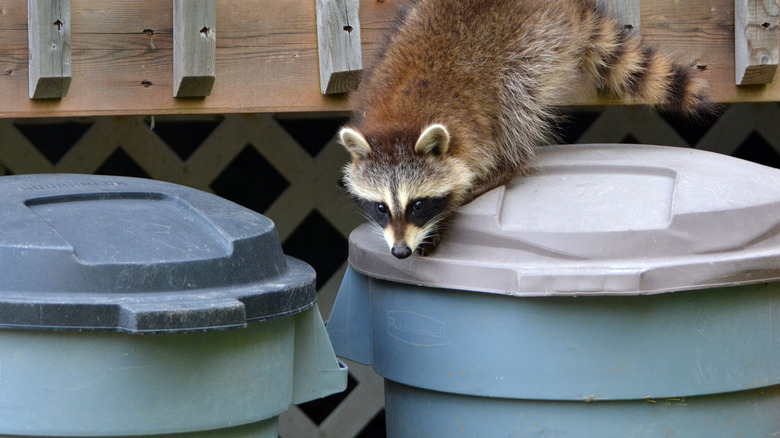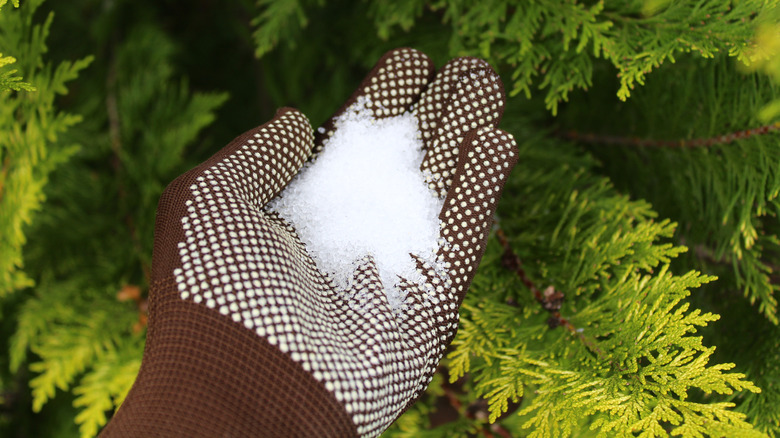Banish Raccoons From Your Trash Cans With One Common Household Ingredient
Taking out the trash can be unsettling when you hear rustling noises from deep within the trash bin. Usually, you can tell there is a raccoon in it from the amount of banging and tumbling, though you may get a glimpse of them if they are repeat offenders. However, a little Epsom salt from your kitchen can help keep the critters away.
Many of us put our trash out before bed, and raccoons most often leap into trash cans overnight because these masked bandits are nocturnal. Unless you want to get up early to catch the garbage truck right before it comes in the morning, you'll want to find a way to banish them from going near your garbage cans for good.
Before you do anything, you have to make sure your garbage cans are as clean as they can possibly be, considering they house a raccoon's dream meal. This means cleaning them out with soap and water once a week to remove all remaining food particles. Raccoons search for any kind of leftover food, so removing the scent helps lessen the attraction. Once clean, you can grab some Epsom salt.
How epsom salt repels raccoons
Though many people resort to chemical pesticides to deter raccoons from hanging around outside the home, one household ingredient is a natural deterrent that is safe for children and pets. It is also cheaper. Most people keep Epsom salt on hand to use for everything from reducing pain and cleaning to de-stressing and sleeping better. Though Epsom salt can be quite healing for humans, raccoons really do not like it at all.
Simply sprinkle a few teaspoons of Epsom salt along the top of your trash cans. Keep in mind that trash cans should always stay covered to further deter raccoons and other pests from getting inside and ripping your garbage bags apart. Then sprinkle a little more Epsom salt around the perimeter of the cans.
In total, you should aim to use about 4-5 teaspoons of salt. After it rains, you'll need to reapply it. Raccoons highly dislike the taste of salt, and once they get a mouthful, they will continue on their way and seek out other nearby leftovers that don't taste the same.

